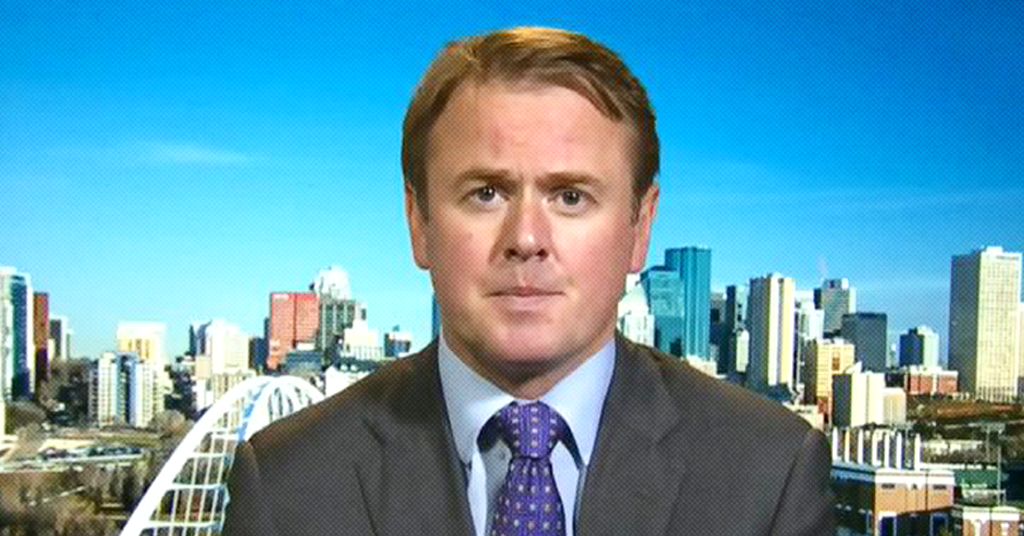Conservatives like to talk about "corruption". A lot. But do they mean the same thing most people mean by the word? I think many people would consider a political party doing something that does not benefit the people, but rewards their friends as corruption.
Say, for example, a Minister of the Crown who passes legislation liable to directly benefit a family member or themself, to the detriment of the public good. That seems like corruption.
pressprogress.ca/albertas-healt…
pressprogress.ca/albertas-healt…
Or a government that invents panels & advisory positions for friends & donors & arranges for these panels and advisors to return reports and recommendations that mirror what the governing party wants to do, but with the guise of "research" and "impartiality". Seems corrupt.
Or, a government that changes electoral boundaries and/or rules to favour their party in the next election. Or makes backroom deals where advantages are offered in exchange for funding PACs and promoting the party. Those seem like corruption.
The James McGill Buchanan definition is subtly different. I now present you with a quote from @NancyMacLean5 's book, "Democracy in Chains" which illustrates this point...
"Buchanan believed with every fibre of his being that if what a group of people wanted from government could not, on its own merits, win the freely given backing of each individual citizen, including the very wealthiest among us, any attempt by that group to use its numbers to get what it wanted constituted not persuasion of the majority but coercion of the minority, a violation of the liberty of individual taxpayers."
In other words, he viewed governments who do things the majority (or large groups of citizens) wants, in order to get re-elected, as corrupt, if those things impinged upon the wishes of anyone (particularly the wealthiest).
So, current Canadian conservatives (who seem to be advocates of the Buchanan school of thought) would feel that, for example, a government raising the minimum wage against the wishes of wealthy business owners, is corrupt.
Obviously, a government that is run on Buchanan's principles would do nothing in crisis situations, if the wealthy did not like the action. The CPC have strongly indicated that they feel CERB and other pandemic relief is deeply suspect.
They want to have a committee to examine the "corruption" of the Liberal government in setting up programs to help people. They have signaled that they would have done nothing. Just as Harper did not want to act on stimulus spending during the recession of 2008.
The Buchanan philosophy gives the wishes of the extremely wealthy preeminence, because he felt their rights were being infringed by any government action that interfered with their ability to be wealthy and continue to amass wealth.
Remember, from my first instalment about Buchanan, that his theories emerged from a deep resentment of having to treat black citizens in the southern US equally, and the associated costs of that to the wealthy taxpayer.
Buchanan's philosophy is predicated on the notion that people are not equal. The wealthy are more important and must not be victimized by the not-wealthy, even though the not-wealthy have far greater numbers.
Most of us understand democracy as a system in which people vote for a candidate from the party they feel will most benefit their community or the country. And the governing party tries to work to the public good, thus pleasing the people, and being re-elected.
In pleasing the people, in a system where number of votes matters more than people's bank accounts, large groups of not-wealthy people have power. Buchanan would say this "pleasing the people" is corruption, because it doesn't protect the interests of the wealthy few.
It is important to understand when conservatives speak these days that their terms of reference may not be the same as most people's. Likewise, their goals may be completely at odds with those of most Canadians.
Stay tuned, there will be more about Buchanan soon!
Stay tuned, there will be more about Buchanan soon!






Wow, amazing weblog structure! How lengthy have you been blogging for? you make blogging look easy. The total look of your web site is great, let alone the content!
ReplyDeleteCorruption is a matter of “dishonest or illegal behavior especially by powerful people,” including, for instance, government officials or the police; and primary examples of corrupt behavior are bribery and any other inducement by improper or unlawful means.1 The varying forms and expressions of corruption may, in fact, form an unending list, since new, more sophisticated, subtle or covert forms are pretty sure to arise. The more corruption is exposed at any given time and place, the more subtle and covert it tends to become. Partly in consequence, attempts at definition and demarcation of corruption vary and are often problematic or incomplete; “the class of corrupt actions comprise an extremely diverse array of types of moral and legal offences undertaken in a wide variety of institutional contexts including, but by no means restricted to, political and economic institutions.”2
ReplyDeleteAs Lincoln Steffens put a similar point, directly concerned with Gilded Age corruption in St. Louis, Missouri, one had to fear that, “… the exposures by Mr. Folk will result only in the perfection of the corrupt system.”
----------------------------------
Outlook Nummer
The more corruption is exposed at any given time and place, the more subtle and covert it tends to become. Partly in consequence, attempts at definition and demarcation of corruption vary and are often problematic or incomplete; “the class of corrupt actions comprise an extremely diverse array of types of moral and legal offences undertaken in a wide variety of institutional contexts including, but by no means restricted to, political and economic institutions.
ReplyDelete======================================================
Bellen Outlook Klantenservice